The American Right & Cinema: What Keeps Going Wrong?
The Right's Biggest Hurdle in Entertainment is Overcoming Itself
Reagan, the new biographical film from director Sean McNamara on the late 40th president, released in theaters August 30th 2024. I caught an early screening of the Dennis Quaid-starring picture at a mostly empty Queens, New York theater. There were four of us seated for Reagan. The trailers that preceded the movie were the expected fair, promoting mainstream Quarter 3 releases — Beetlejuice, Beetlejuice, Super/Man, and Megalopolis. They hadn’t thrown in any previews to Kevin Sorbo flicks to come, or Christian talking dog movies—everything was played straight. But then the opening credits started to roll on Reagan and I noticed a slew of names that told me exactly what I was in for.
Robert Davi. C. Thomas Howell. Kevin Dillon. And introducing… Scott Stapp of the band Creed as Frank Sinatra.
The film industry is a business and, somehow, including those names on the call sheet has reliably tempted somebody—in some market—to keep buying and distributing these types of films. But for the average, mostly open-minded filmgoer, those are the kinds of names that give any movie an immediate stink. I should have read the cast list to completion before giving my time to the bloated 2 hour, 15 minute biopic.
I allowed myself to be lured in by Dennis Quaid as the headliner and the idea of Ronald Reagan. Reagan, in recent years, has become a villain of modern history to angsty Chapo-leftists who were not even alive for his presidency. As far as our commanders-in-chief go, Reagan is at an Andrew Jackson-level of contempt from people who think they know American history. It’s the same thoughtless, “Boomers ruined the world,” mentality that has allowed every problem of modernity to be pinned on a dead or dying boogeyman.
Ronald Reagan, to me, is a lot like another icon of western culture who just so happens to share his namesake—Ronald McDonald. Ronald Reagan is the Ronald McDonald of 20th-century American history. He was a cowboy. He was an actor. His ghost is the spirit of this country.
The policies? They don’t matter. Homeless schizophrenics wound up on the streets, people didn’t get their HIV medication, Nancy Reagan gave some blowies in her youth—this may fuel snarky Reddit posts and a post-2016 Wikipedia article, but it is an empty narrative. Ronald Reagan is the divorced actor who rode his way to the White House by horseback, survived a ricocheted gunshot, lead a union, and won 49 out of 50 states in a total blowout electoral college victory. He is the one name that the Republican party could not get out of their mouths until Donald Trump came down an escalator in 2015. Ronald Reagan is an American legend.
Of course, it would only be a matter of time before a biopic came along. A cast featuring Dennis Quaid, Mena Suvari, Penelope Ann Miller, and Jon Voigt (if we put aside many of his recent anti-Biden teleprompter reads and direct-to-Redbox films) didn’t seem entirely hopeless. In fact, if Reagan were released in 2000, that would be an A-list cast. Yet what was delivered was not a functional exercise in filmmaking. Scribed like a history book, the film boasted Reagan’s ‘greatest hits’ as a politician and featured scenes that would have been better served as reenactments for an A&E documentary on the late president. The presence of a legitimate budget is there, we have songs from Genesis and Guns N’ Roses on the soundtrack, but then some scenes feel reminiscent of the fake On Cinema at the Cinema movie “Decker vs. Dracula.”
Comedian Tim Heidecker stars as Decker in “Decker vs. Dracula” (2015), seen sitting in the White House There is the needless inclusion of a green screen cemetery, cheap effects that are intended to make 85-year-old Jon Voigt appear young but instead make him look like a Resident Evil monster, and an abundance of stock footage from the ‘70s and ‘80s that hampers recreations of historic moments. It has all the elements that would typically build to a workable film but the result is a long narrative piece without any rhythm.
A frequently perpetuated talking point on social media is that identifying as right-wing makes one incapable of creating great art. With what serves as the (closest thing to) mainstream examples of that, you have to wonder if it’s true. Well, left-wing brains and right-wing brains do process information and details differently. Watching a propaganda piece like Reagan is a different experience than watching a propaganda piece like Vice. Adam McKay, despite at times being a total establishment-liberal cringelord, has an understanding of what makes for strong visual storytelling.
What you see in Adam McKay’s Vice may not be thought-provoking, but it’s at least entertaining. Reagan could have been a compelling character piece had they thought to give the script a proper three-act structure and avoided painting the president as a saint. Having a gay son in a pre-Will & Grace America and facing signs of Alzheimer’s while serving as the face of the country could have lent themselves to being fantastic story elements. What is prioritized, instead, is Ronald Reagan as a Superman figure. This apparently worked for one member of my four-person audience in Queens, as a man stood up and clapped at the end freeze-frame of Dennis Quaid smiling as Ronald Reagan.
The money for these films is put up easily, it is spent easily, and once the movie is released it returns easily. The conservative dad audience of 60-year-old men and their 50-year-old wives have low entertainment standards. They watch Fire Country every Friday night on CBS, a network that despises their midwestern, Christian, Baby Boomer audience and has tried very hard to purge them under the helm of Network President George Cheeks. Even when an effort is made to rally around a film that is perceived as right-wing, at best it is just a Sound of Freedom. There is little desire to wander off the reservation of ‘history’ and ‘Christianity’ as its two favorite subjects.
Gary Busey and William Katt in the John Milius film Big WednesdayJohn Milius is perhaps the most straightforward example of a right-wing filmmaker and screenwriter who penetrated the mainstream. Milus was the writer behind such classics as Apocalypse Now, The Life and Times of Judge Roy Bean, and two of the Dirty Harry films. He also directed Big Wednesday and Conan the Barbarian. The Milius influence is stamped upon the last fifty years of entertainment history, especially New Hollywood. His movies never seemed more concerned with delivering a message than illustrating a story. Funny how well that makes a film work.
Promotional art for the 2020 documentary The Plot Against the President, directed by Amanda MiliusAmanda Milius, the 41-year-old daughter of John Milius, has followed in father’s footsteps… somewhat. Her documentary about the Russian Collusion scandal surrounding the Trump administration The Plot Against the President was a significant hit for her company AMDC Films in 2020. It’s a well-made documentary and leaps and bounds above similar fare produced by Dinesh D’Souza. But at the end of the day, it is still a documentary and one that is very concerned with problems that existed within a limited timeframe. Milius is a staple within this new-right collective of young filmmakers but her skills seem reserved for making HBO-quality docs tailored to a conservative audience and a conservative audience only. To date, The Plot Against the President has been her only documentary released. Rumor has it that there are three unfinished documentaries that Milius conducted interviews for focusing on Alex Jones, Nick Fuentes, and Jack Posobeic.
Behind the Scenes of TFW No GF with Alex Lee Moyer and “Kantbot”Alex Lee Moyer directed a film analyzing internet culture and its impact on disaffected young men titled TFW No GF. It was the standout picture of the 2020 SXSW festival that no distributor wanted to get their hands on. TFW No GF eventually landed at Massacre Video for a boutique physical media release, but few legacy outlets have bothered to look back at the documentary since its initial splash. Moyer, like Milius, doesn’t seem interested in venturing outside of the documentary genre despite having clear artistic chops. Her second film Alex’s War, released in 2022, begins as an interesting character study on the host of InfoWars - Alex Jones. By a little over the 1 hour mark of its strenuous 131 minute runtime, Alex’s War becomes a defense against the charges levied against him by the Sandy Hook families—who later got Jones on the hook for an unprecedented $1.5B.
Dasha Nekrasova and Madeline Quinn in The Scary of Sixty-FirstThe most successful new-right stab in film comes from Red Scare host Dasha Nekrasova with her 2021 Epstein-inspired horror film The Scary of Sixty-First. (Are you beginning to notice a trend here that it seems to be all women?) Nekrasova first arrived on the scene in a popular clip from SXSW where she had trolled an InfoWars reporter under the moniker “Sailor Socialism.” Since then, Nekrasova has evolved into a more steadfast right-wing figure and tastemaker. It hasn’t impacted her ability to navigate the industry, as she was cast in a recurring role in Season 3 of Succession and featured in the 2024 Bertrand Bonello film The Beast, which is now streaming as a Criterion Channel exclusive. The Scary of Sixty-First is not an even movie but it feels more advanced than a ‘baby’s first film’ outing. Nekrasova has a good sense of humor and a strong instinct for aesthetics, making the film an easy watch. What I might commend her for most is acquiring a deal to ensure that the film received an elegant Vinegar Syndrome physical media release. Good taste.
Charls Carrol in Million Dollar Extreme Presents World Peace And then, of course, you have the crown jewel of new-right filmmaking, which isn’t a film at all, but comes in the form of a sixty-minute single season of television: Million Dollar Extreme Presents World Peace. Directed by Andy Ruse, and written and helmed by the members of the Million Dollar Extreme comedy troupe Sam Hyde, Charls Carrol, and Nick Rochefort — World Peace merged aesthetics, comedy, and cultural commentary successfully in its limited outing on the Cartoon Network subsidiary Adult Swim. The series was struck down after its sixth episode aired in 2016. Series creator Sam Hyde had become the target of hit pieces in BuzzFeed and other left-wing media outlets that have come and gone in the eight years since. Following the series cancellation, Andy Ruse directed music videos for A$AP Rocky, Joji, and Bones and produced short films for Kristoffer Borgli. The Million Dollar Extreme sketch comedy trio reunited in 2023, after funding was finally received for a second season of World Peace, titled Extreme Peace. It was directed by Alex Schultz and Bobby Hacker and is expected to be released later this year.
No, I’m not including Tim Pool in this lineup for his Timcast music videos, but I needed a visual marker to start a new segment in this articleA common trope in discussions regarding art and politics is the act of assigning particular movies a ‘right-wing’ label years and even decades after their release. Tim Heidecker, on Howie Mandel’s talk program Howie Mandel Does Stuff, tries to make the point that Police Academy is an example of right-wing comedy and filmmaking. Yes, the same Police Academy films that rely on ill-prepared cops and verbal sound effects performed by Michael Winslow as a source of comedy. If your politics land far-left of the dial, then you can make the argument that any movie is right-wing—Rent could be considered right-wing.
But members of the right do this, as well. Take Tim Pool for example. Pool, during his Tenet Media and Timcast live streams, has on occasion obfuscated films like Marvel’s Captain America: The First Avenger as being conservative. A leftist argument could be made that Disney/Marvel is inherently right-wing by catering to racial and gender biases in their marketing to appeal to a less open-minded overseas audience. You could also tote the time-old, “Disney/Marvel is the propaganda arm of America’s military-industrial complex,” line. But these films do not invoke conservatism or promote a right-wing ethos. Usually, they just take place in an older time, aren’t wholly anti-American, or focus on heroes that use guns. Patriotism wasn’t even seen as politically ‘conservative’ until our post-2016 media atmosphere, where the word “Nationalist” was given the same tint as “White Nationalist.” In Trump’s America, Hulk has to wear glasses and behave thoughtfully, lest he showcase his hallmark “toxic masculinity.”
Vince Vaughn and Jennifer Carpenter in S. Craig Zahler’s Brawl in Cell Block 99S. Craig Zahler is a relatively fresh face to directing. He formally arrived with 2015’s Bone Tomahawk, after spending over a decade writing scripts that mostly never made it to the silver screen. His second film Brawl in Cell Block 99 was released in 2017, and his third and most recent film Dragged Across Concrete landed in 2019. Each of these films offers a unique flavor, as written by the same hand, and features a not-so-subtle undercurrent of right-wing politics that never seem to trample over the stories or their characters. Though, admittedly, Dragged Across Concrete—which in 2019 I had named the year’s second best film—contains a monologue from Don Johnson about cancel culture that dances dangerously close to that line. Zahler’s time in the director’s chair was seemingly derailed following the dissolving of Cinestate in 2020, which had produced and released all three of his films and Puppet Master: The Littlest Reich, which he had scribed. His fourth film The Bookie & The Bruiser, starring Vince Vaugh and Adrien Brody, is currently in pre-production with C2 Motion Picture Group.
Bonfire Legend, the brainchild of film producer and Cinestate founder Dallas Sonnier, emerged in 2021 after a hit piece in 2020 took down Cinestate and its subsidiaries. The article was focused on producer Adam Donaghey’s sexual behavior towards a minor on an A24 set—completely unrelated to any of Cinestate’s productions. Adam Donaghey had signed on to produce a couple of Cinestate’s films in the late 2010s. That was enough for The Daily Beast to lay a foundation for claims that incidents (not involving Donaghey) had occurred on the set of the Cinestate/Fangoria horror film V.F.W. None of these claims were substantiated and most complaints were chalked up to “long hours” and “unprofessional” set conduct. That didn’t matter to those at Fangoria, which had recently been acquired by Cinestate. The managerial staff who Sonnier had allowed to stay on from Fangoria’s previous incarnation (and whose taste brought the magazine to cancelation) publicly mutinied against him at the first opportunity.
Sonnier had been buying up dying film presses like Fangoria and Birth.Death.Movies., and launched an overtly conservative film journal called Rebeller. In retrospect, it’s clear that these moves to expand Cinestate’s reach had painted a bullseye on the company’s back. Sonnier was forced to sell off Fangoria and Birth.Death.Movies. and end Rebeller. Bonfire Legend emerged from those ashes with an unreleased film in the can: Run Hide Fight.
The Daily Wire has made an effort to subvert the obvious potholes on the tacky Christian highway to movies like God’s Not Dead. Bonfire Legend’s Run Hide Fight, which premiered at the 77th Venice Film Festival, was the first film they acquired in their partnership with Dallas Sonnier. It was released online as a Daily Wire exclusive, with a live viewing party on YouTube to promote their premium service DailyWire+. The audience reaction to Run Hide Fight was tepid. Since 2021, The Daily Wire has released five original films with Sonnier as producer, the two most successful being the documentary What is a Woman? and 2023’s scripted comedy Lady Ballers. A sixth is set to arrive on September 13, 2024 titled Am I Racist? starring Matt Walsh.
Vincent Gallo stars in Kyle Rankin’s 2022 film Shut In, produced by Bonfire Legend and The Daily WireThe Daily Wire’s first original production would be the 2022 thriller Shut In. Not long after the hit pieces against Cinestate in 2020 dropped, I had a phone call with Dallas Sonnier where I advised him to steer ahead, not kill or sell off the publications, and to look to Vincent Gallo as an example of how to navigate as an openly right-wing artist. Fast forward to 2021, Sonnier’s Shut In entered production and Vincent Gallo’s name was at the top of the call sheet—his first film since 2013’s The Human Trust.
Vincent Gallo is not only the finest example of a right-wing American filmmaker, but he is also one of the all-time great directors. Unfortunately, following the press surrounding 2003’s The Brown Bunny and its featuring the best ghost blowjob scene in a movie since the original Ghostbusters, Gallo has refused to release his films to the public. It has been recorded on his website that since The Brown Bunny, he has directed several short films and one feature—publicly screened in 2010 and then withdrawn—called Promises Written in Water. "Making a film with no plan to show it was more transforming than otherwise. The possibilities of what a film could be, could never be realized with the public so in mind. The public has no productive purpose for me now. If no one ever sees or hears anything I make again, it doesn’t change what I’ve made but instead changes the possibilities of what I could make later on,” Gallo said in an essay for Another Man. There have been alleged leaks of Promises Written in Water in the 14 years since its premiere at the Venice Film Festival, but nothing has stuck or turned up for long.
SewerCityTV’s “Inside the Mind of Vincent Gallo” website exploration credits yours truly.Gallo, since 2020, has undergone a second wind as an early-aughts edgelord and creative titan. I’d be lying to you if I did not feel that I was the seed for that cultural re-emergence, by not shutting up about the man and his work on my weekly show //MOVIES - A Podcast About the Act of Cinema, my appearances on other talk programs to discuss his films and his hilarious website, and my YouTube videos which, at the time, had spread Gallo-awareness to Gen Z and millennial film fans. This influence had grafted onto others and repurposed Vincent Gallo as a meme.
In October 2022, NPCC hosted An Evening with Vincent Gallo. It was an event that screened his masterpiece Buffalo ‘66, featured a live Q&A with Gallo, and an afterparty that was quickly defused. Guests were made to sign NDAs to attend, and the event location was announced the morning of. The second wind peaked with that night. As of 2024, young white male Gallo hype has become gauche, though love and adoration for Gallo and his work continues—as it should.
For a year where one candidate was inches from assassination and another, the sitting president no less, was strong-armed out of seeking re-election after winning his primary, the political climate is surprisingly lukewarm. The idea of a young right-wing filmmaker, a provocateur fighting the ‘liberal Hollywood’ system, isn’t as spicy—or as exciting—as it may have been in 2017 or 2018. The Dimes Square moment of 2021/2022, if anything, re-established a bridge between the millennial and Gen Z right and left through ideologically scattered pieces like Betsey Brown’s Actors and Aimee Armstrong’s Envy/Desire. What we’re looking at is a creative timeline unfolding that seems intent to veer away from the corporate political norms of the 2020s. And that’s a good thing.




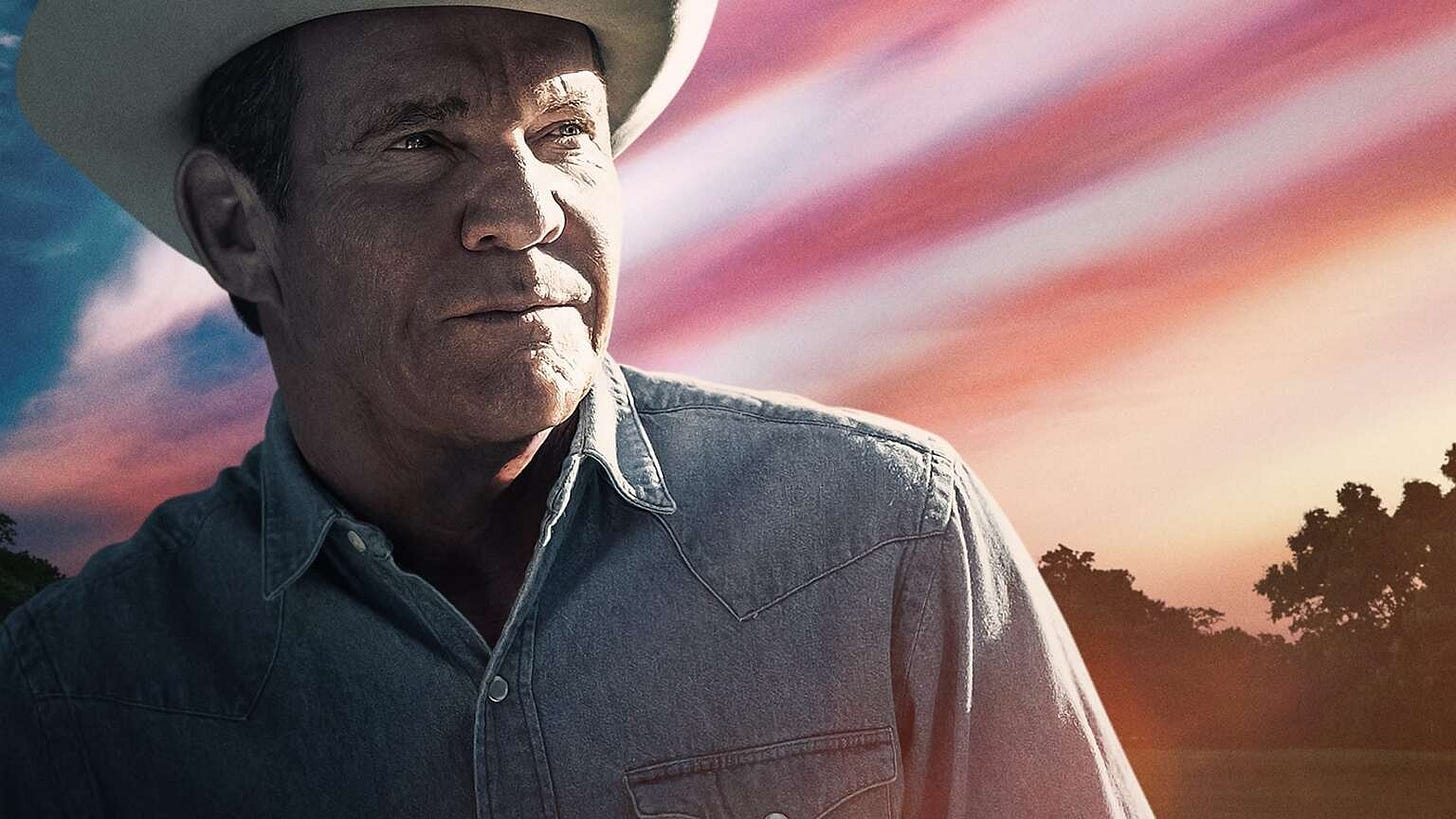


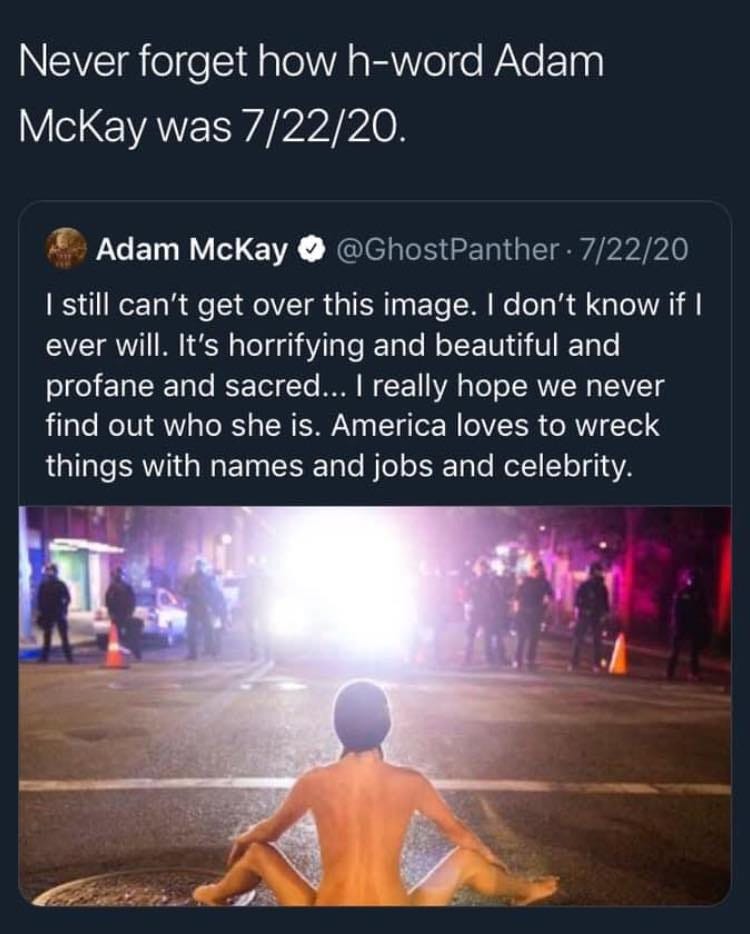
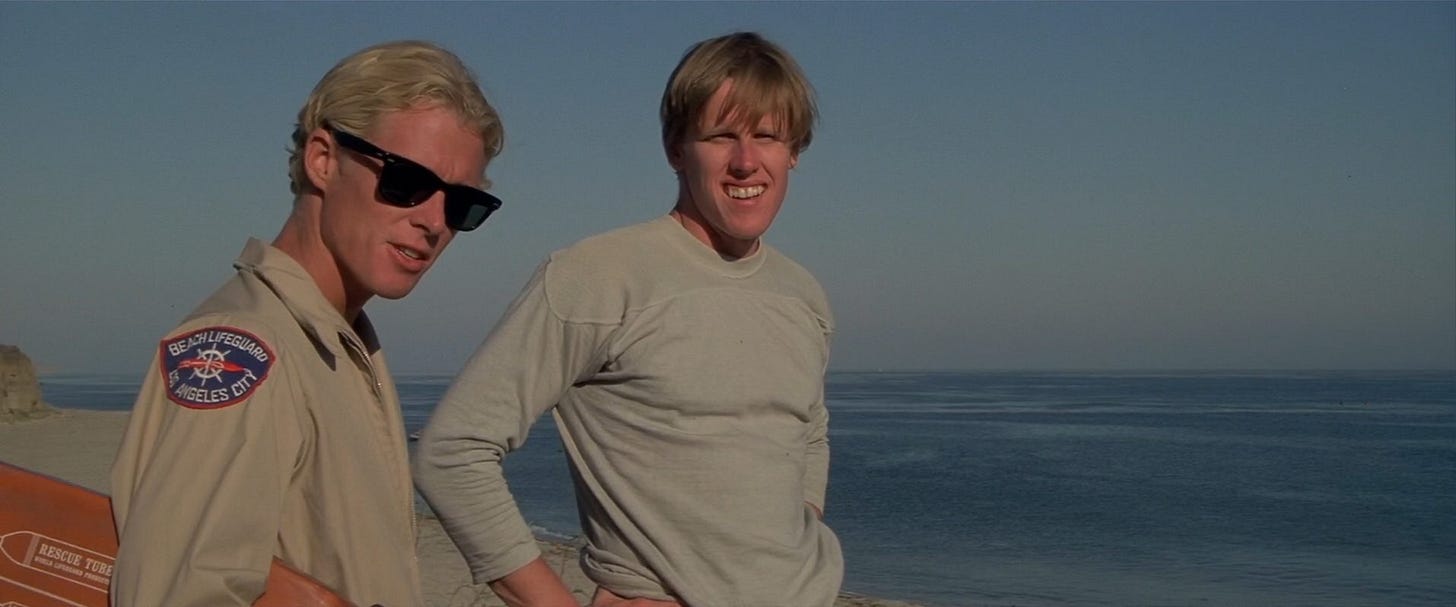



![4K/8K Upscale] Million Dollar Extreme Presents: World Peace (Uncut) : Million Dollar Extreme : Free Download, Borrow, and Streaming : Internet Archive 4K/8K Upscale] Million Dollar Extreme Presents: World Peace (Uncut) : Million Dollar Extreme : Free Download, Borrow, and Streaming : Internet Archive](https://substackcdn.com/image/fetch/$s_!wpBg!,w_1456,c_limit,f_auto,q_auto:good,fl_progressive:steep/https%3A%2F%2Fsubstack-post-media.s3.amazonaws.com%2Fpublic%2Fimages%2F788f2d55-9360-4309-a9fe-1fbee3b2c412_720x406.jpeg)


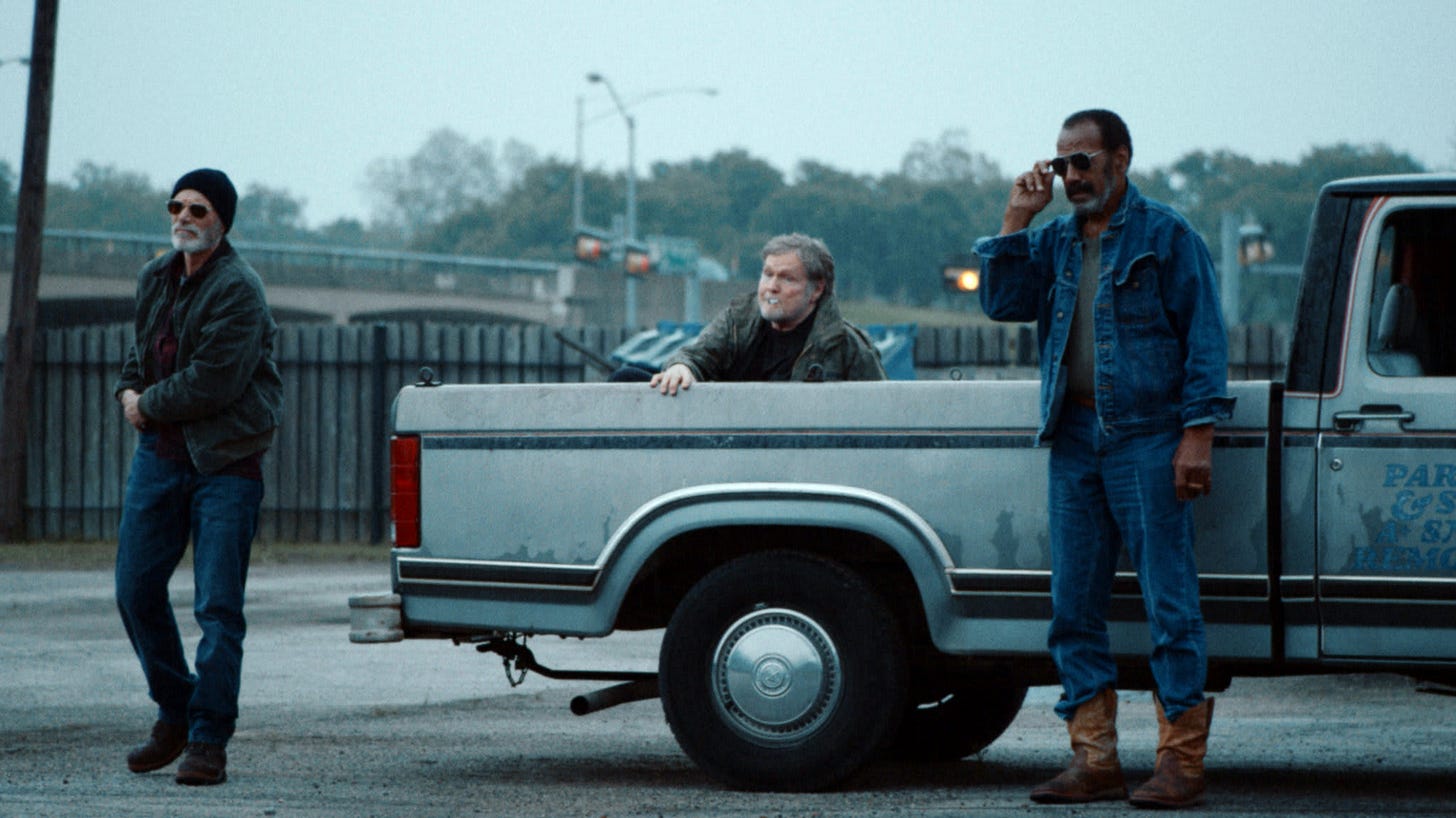
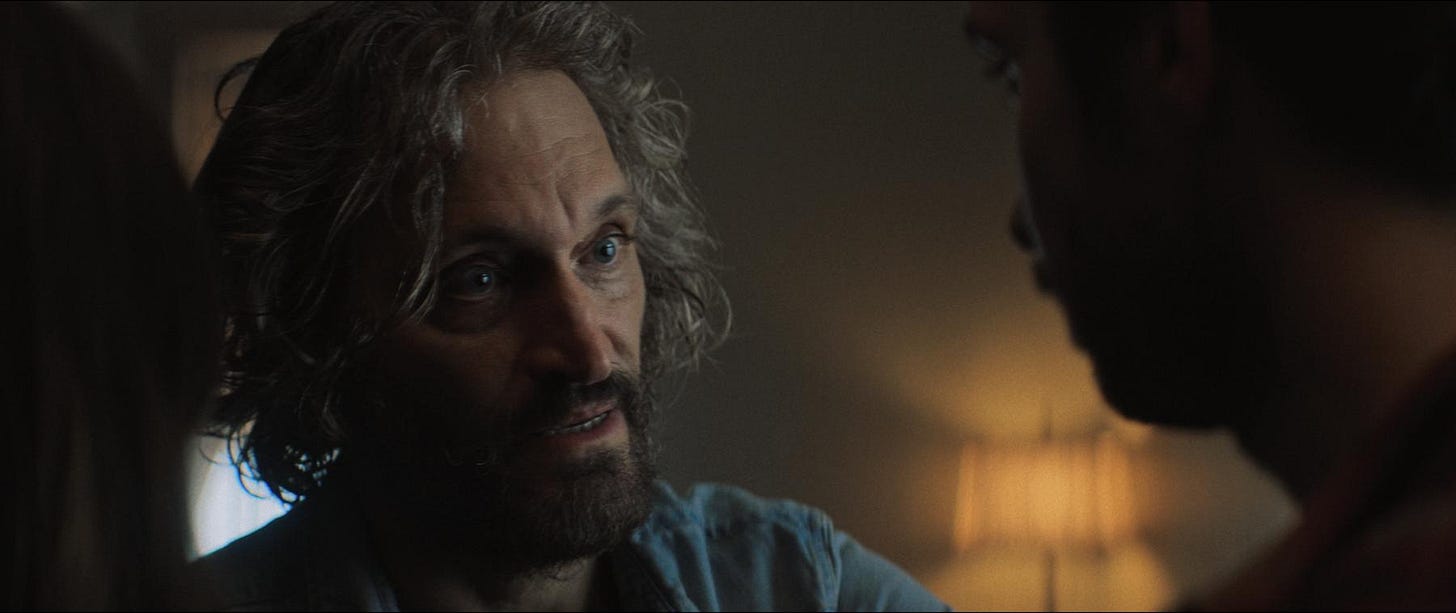

I love Zahler's Puppet Master: The Littlest Reich...so funny and subversive at the same time. I am surprised it was allowed to be made and released.
Cool article. I know it's not cinema, but any opinions on the rw copying Kanye's vibe?